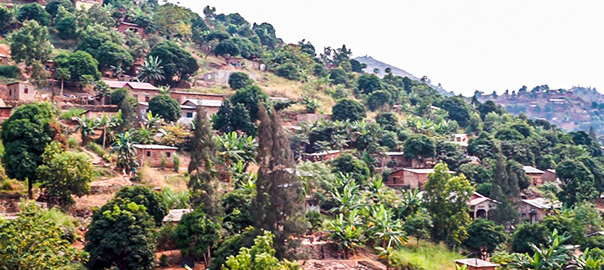We recently checked in with some of our TCT partner churches in DRC and heard many encouraging stories about how God is using them in their communities. Many stories included their efforts to steward natural resources. These churches learned from Module 2 training that God created and cares about all of nature and has commanded mankind to steward it. They also heard for the first time that the materially poor are not excluded from this biblical command.
Suddenly, they understood that, rather than helpless victims of poverty and nature, they were God-ordained stewards. This new identity caused them to think about how they could address everything from food shortages to deforestation. Here are a few that really struck us.
Saving the Rainforest in DRC
There are 37 million acres of rainforest in Democratic Republic of Congo (DRC). In some respect, the biggest threat to this rainforest is poverty. As one pastor explained, “The government may say, ‘Do not cut down the trees.’ But the people say, ‘We’re hungry. So we must cut down the trees in order to eat.’” But the temporary benefit of cutting down trees and selling wood products increases poverty in the long-term as erosion takes over, making farming less and less productive.
One of our TCT partner churches was situated in a community facing this lose-lose situation. But after understanding that God wanted them to be good stewards, they set to work to find a solution.
Although they don’t have any irrigation system in their area, they realized that they have a valley where the soil stays moist longer than the surrounding areas. They went home from the TCT training and planted onions in that valley, just before the rainy season. It was a risk, because this was something no one had tried before. The community watched and waited to see what would happen to the church’s onion patch.
God blessed the garden and it flourished, giving the pastor the opportunity to share this idea with all the nearby communities, helping them see that they could grow onions to sell rather than cutting down trees. Next, the church wants to teach people how to keep bees and produce honey as another source of income. By helping people have other ways to feed their families, they are also protecting the forest. The church is now making plans to begin replanting trees. They’re doing all of this to bring God glory by stewarding His creation.
Recognizing Unused Resources
One community included about 25 acres of fallow land. Once their eyes were opened to see the land as a resource God had given them to steward, the church created a fish pond on the land. Now the whole community has the opportunity to add fish to their diets to improve their nutrition.
Another church had 42 acres of unused land. They went home from the training and started their own seed multiplication project. Giving the whole community the chance to help, they planted the land and tended the crops. At harvest, everyone who had worked on the land was given their portion of the seeds to plant in their own garden. After this project, even the unbelievers expressed how important the church is to their community.
Rice is the main crop in another village. But because the roads are impassable for part of the year, the people have to store the rice after the harvest instead of taking it directly to market. Every year, by the time they could get to the market, mice had destroyed much of the crop. So the families remained desperately poor. But after understanding his role as a steward and learning to see all the resources God had given, the local pastor had an idea. He contrived a mousetrap out of bamboo and shared the design with his whole community. Each trap is made from freely available materials and is effective at catching two or three mice a day. Because of the mousetraps, this year the farmers lost very little of their crop, and incomes increased.



I am interested in these testimonies because.I have pastors friends who live in forest zones and they can put these ideas into practice